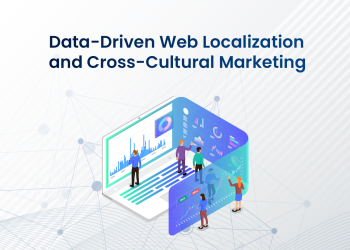Whatever your reason for considering AI, it has the potential of transforming every business. AI can support three important business needs:
- Automating business processes
- Engaging with customers and employees
- Gaining insight through data analysis
With its amazing benefits, there is no surprise that plenty of companies are jumping on this trend. If you are planning to integrate AI into your company, here’s how you can use this technology to benefit your entire operation.
But, before we discuss the steps to get started, there is some basic knowledge you must equip yourself with.
Know the types
Artificial Intelligence is available in several different forms. Before you decide what AI type will shine brightest and contribute to your business’ stellar performance, here are some types you should be aware of.
AI for Method Automation
It involves the automation of back-office administrative and financial activities with the help of robotic process automation (RPA) technologies. These ‘robots’ act like humans and can perform intelligent tasks, such as – collecting data from various IT systems.
AI for Cognitive Insight
AI can be used to detect patterns in vast volumes of data and get meaningful insights out of it, such as – predicting what a customer would like to buy, analyzing warranty data, identifying credit fraud in actual time, and identifying safety issues in automobiles.
AI for Cognitive Engagement
These involve engaging customers and employees using natural language processing (NLP) chatbots and intelligent agents.
Know its limitations
While the benefits of AI implementation are huge, it does fall short in certain areas. Therefore before investing your money into this technology, you must recognize what it cannot do.
Program itself:
AI machines can’t program themselves. Coding involves understanding the ‘fundamental complexities of the real world.’ It’s not possible for the AI to do it.
Generate creative content:
AI today indeed possesses several human-like capabilities, but it cannot be creative, meaning it cannot write imaginative prose without guidelines.
Make ethical decisions:
AI-powered machines can’t make moral judgments for people. This is the reason why self-driving technology is being frowned upon.
All the above points mean just one thing – AI can complement humans; it cannot replace us.
Why Should AI Matter?
Around 10-15 years ago, even the idea of AI sounded like it belonged to the “Star Wars” territory, but today, Artificial Intelligence is no longer a futuristic concept. Companies are implementing AI in several platforms, contributing more than ever to make our lives easier. Consider these stats:
- The market size of AI-wearables is expected to reach $180 billion by 2025.
- AI will cause a 26% increase in global GDP by 2030.
- 80% of retail businesses will have adopted AI in some form by 2027.
- Its contribution to the global economy is expected to reach $15.7 trillion by 2030.
A big takeaway from these statistics is that even though we interact with different forms of AI daily, we don’t realize how significant they are becoming for us humans. We are slowly but surely ushering in an era of AI.
Steps to get started
-
-
Understand what it does
-
Those looking to implement AI need to understand its benefits and limitations first. Several businesses think of AI as a solution that will immediately produce results. But they must understand that AI is an evolutionary technology that gets smarter and smarter as it learns. Therefore, it takes some time. With the help of its learning capabilities, it will just be driving everything in the business world.
-
-
Learn from others
-
If others in your industry have adopted this technology, look at how they are doing. Understand what’s happening there, how they have succeeded, and bring that knowledge to your own business.
-
-
Invest in enhancing human talent
-
For AI to work effectively, you need to create fertile ground for talent. AI requires developers to develop algorithms that drive the logic. Therefore, it is very important to train and retrain your developers regularly.
-
-
Connect AI to your Key Performance Indicators
-
Before you start integrating AI into your business operations, it’s important to figure out your company’s Key Performance Indicators (KPIs). Understand how they can be improved with technologies like AI.
-
-
Make the best use of the available platforms; focus on value
-
Businesses can build upon many AI platforms today, but you need to focus on the use case and business value. Several AI platforms offer several different features and functionalities, and many companies make the mistake of focusing on platforms only. What they should be focusing on instead is the business value they want to drive out of them.
-
-
Consider the people impact
-
When installing AI or machine learning into company processes, it is very important to consider the people you have on the ground who will be interacting with those processes.
Many people tend to take AI on the negative side, but it’s more positive than negative, and it’s very important to make your employees aware of that.
Challenges that most companies face when implementing AI
Integrating AI into businesses has a multitude of transformative opportunities but adopting AI is not always a smooth ride. Here are some main challenges that you may encounter.
-
-
- Lack of AI know-how in management.
- AI implementation is expensive.
- Piles of sensor data collected for AI validation may present noisy datasets that are difficult to store and analyze.
- Data storage issue.
- Requirement of highly trained human resources.
- Requirement of processors with very advanced and super-fast processing power.
- Integrating AI into existing business systems is often challenging.
-
What’s the solution to overcome these challenges?
Adopting a step-by-step and strategic approach will simplify the process of AI implementation to a certain extent and help businesses reap all the benefits.
Wrap Up
Artificial Intelligence today plays a significant role in transforming and strengthening industries around the world. But still, many businesses are wary of using this technology. However, in today’s world, where things are becoming increasingly automated, not investing in AI could mean losing a competitive advantage in the market.







